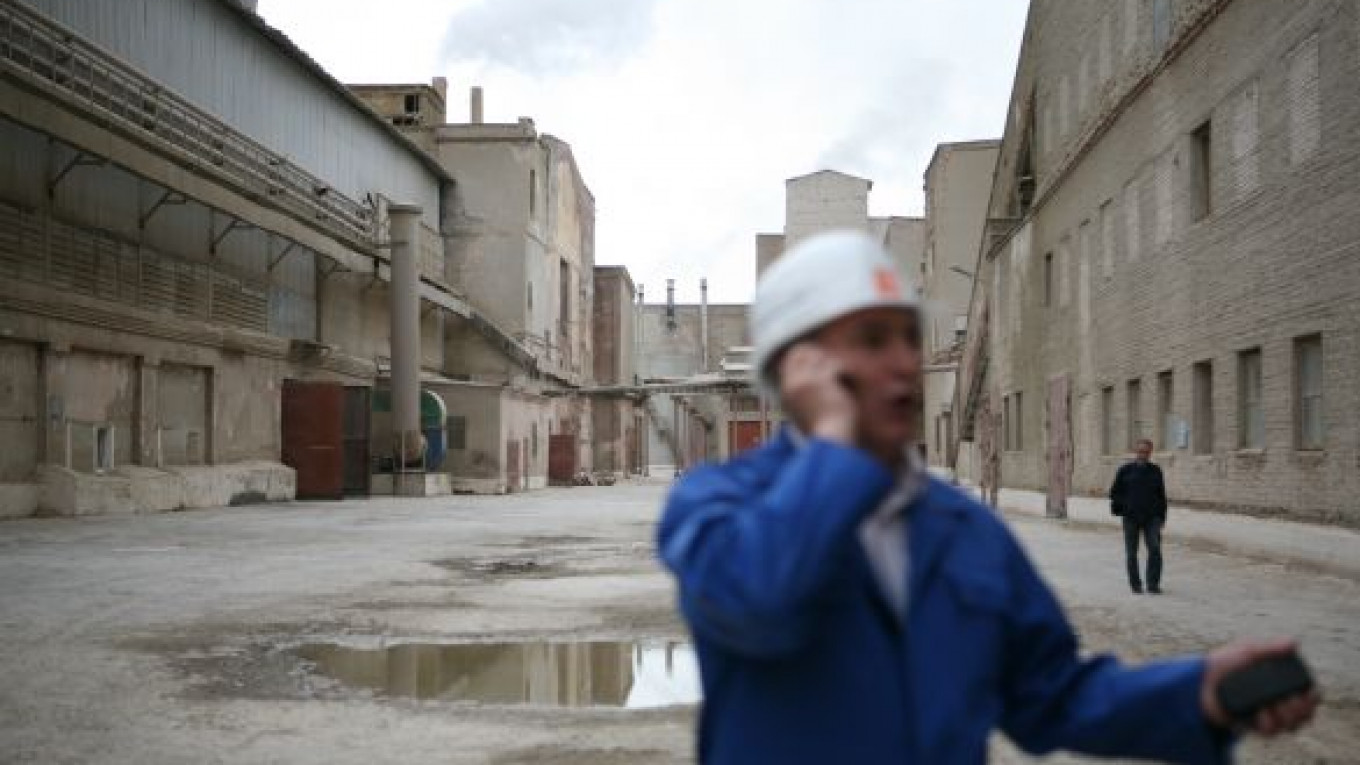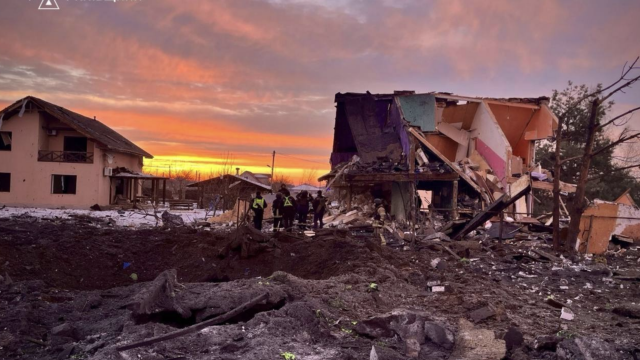Billionaire Oleg Deripaska's Basic Element on Wednesday outlined ways to breathe new life into hundreds of single-industry towns teetering on the edge of economic collapse.
Crude state subsidies should be jettisoned, the company said. Viable towns should be supported, while no-hopers must be wound down.
A holdover from the Soviet Union, 16 million Russians live in 340 single-industry towns across the country, according to the Economic Development Ministry. Their degeneration has long been a headache both for Basic Element and the government, as they try to hold the line between their frequent insolvency and the social consequences of allowing them to fail.
In 2009, workers in Pikalyovo in the Leningrad region near St. Petersberg blocked the main highway because local cement factory, owned by Basic Element, was on the verge of closing.
The situation was difused only when then-Prime Minister Vladimir Putin flew in to offer a packet of state bank loans to fund overdue salary payments and make sure Deripaska — who owns many factories in far-flung regions — fully understood his social responsibilities.
Not all single-industry towns have the same grave outlook as Pikalyovo. Provided government help is applied in the right places, more than half are economically robust, said Sergei Lomanov of the Center for Strategic Research, a nongovernmental think tank commissioned by Basic Element to conduct the research.
"There is no need to drag investors into many of these towns. Usually they already have small and medium-sized businesses running that need only baseline support from local authorities and, possibly, limited additional benefits," Lomanov said.
The last government support program for single-industry towns that ended in 2011 aimed to subsidize the diversification and re-profiling of existing production.
However, this approach is often a dead end. If a region has a depleted coal mine and no other basis for industry then nothing can be done, Lomanov said.
The research advocates a more flexible strategy. Studying 18 towns across the country, it breaks down single industry towns into four categories based on the potential of the industry they were built around and on what other production could be developed, said Vadim Geraskin, deputy head of Basic Element.
Towns in the worst category — when both the town and its core industry are declining — should undergo "controlled squeezing," the research concludes, meaning that their population, civil facilities and utility services would be gradually cut down to economically viable levels.
Such towns would require extensive government support to keep their basic services running while subsidizing people to move to other regions.
In regions with more potential, specialized industrial parks may be created to promote new production.
Andrei Sokolov, the head of the department that oversees special economic zones at the Economic Development Ministry, said that the research will serve as a basis for a new government program to support single-industry towns that is to take shape in the next three months.
About 50 billion rubles ($1.4 billion) will have to be thrown at the issue in the next few years, according to the ministry.
Contact the author at [email protected]
A Message from The Moscow Times:
Dear readers,
We are facing unprecedented challenges. Russia's Prosecutor General's Office has designated The Moscow Times as an "undesirable" organization, criminalizing our work and putting our staff at risk of prosecution. This follows our earlier unjust labeling as a "foreign agent."
These actions are direct attempts to silence independent journalism in Russia. The authorities claim our work "discredits the decisions of the Russian leadership." We see things differently: we strive to provide accurate, unbiased reporting on Russia.
We, the journalists of The Moscow Times, refuse to be silenced. But to continue our work, we need your help.
Your support, no matter how small, makes a world of difference. If you can, please support us monthly starting from just $2. It's quick to set up, and every contribution makes a significant impact.
By supporting The Moscow Times, you're defending open, independent journalism in the face of repression. Thank you for standing with us.
Remind me later.






